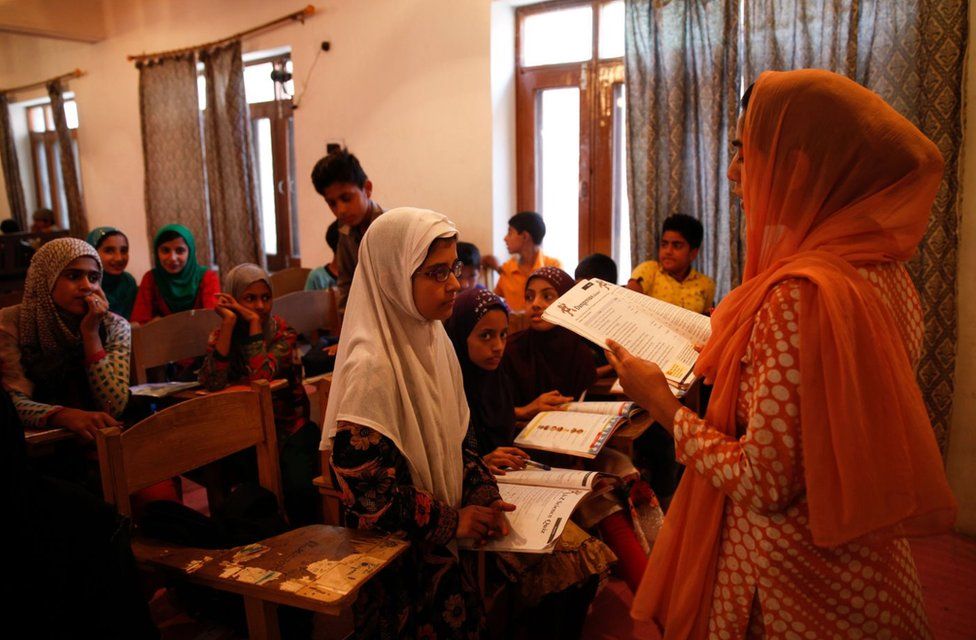In pictures: Kashmir's 'curfew schools'
- Published

The ongoing unrest and curfew in many parts of Indian-administered Kashmir has shut down schools. But volunteers have set up makeshift centres in homes and mosques to ensure children continue to get education.
Authorities have imposed a curfew in the Muslim-dominated Kashmir Valley after an upsurge of violence since 9 July. The protests were sparked by the death of popular militant leader Burhan Wani in a gunfight with the Indian army.
More than 60 people, mostly young men, have been killed in clashes between the protesters and security forces, and thousands more have been injured in the worst violence seen in the region in years.
Disputed Kashmir is claimed in its entirety by both India and Pakistan and has been a flashpoint for more than 60 years, sparking two wars between the countries. Within the disputed Muslim-majority territory, some militant groups have taken up arms to fight for independence from Indian rule or a merger with Pakistan.
Photographer Abid Bhat visits these makeshift schools to see how children are getting education amid the unrest.
Children have been travelling long distances to attend these classes as they struggle to study in the absence of regular schooling.
Tabi is in second grade, but her school has been shut since the start of the unrest. Her father brings her on a bicycle to a makeshift school for early morning classes. She says she misses her regular school but "is fond of her new teachers and friends".
More than 200 students are being taught by volunteers at this mosque in Rainawari area of Srinagar. The caretakers of the mosque started this school after 20 people volunteered for teaching.
The money for tables and chairs has mostly come from donations. Some government schools, which are shut due to the protests, have also loaned their furniture to the makeshift schools. But in many of these schools, children often have to sit on the floor.
Most children have to walk to their alternate schools amid the heavy presence of security forces.
Some students come to attend classes in groups, walking through the inner lanes and bylanes where there are fewer police or paramilitary forces.
Volunteers say that they had to work hard to set up these makeshift schools. Khalid, one of the volunteers, says the concept of alternate schooling did not materialise all of a sudden. "We conducted research to find students, learnt about their lessons and found teachers for them," he said.
Some of these schools are also being run in wedding halls because most people have postponed their marriages due to the protests.
- Published15 August 2016
- Published14 July 2016
- Published13 July 2016